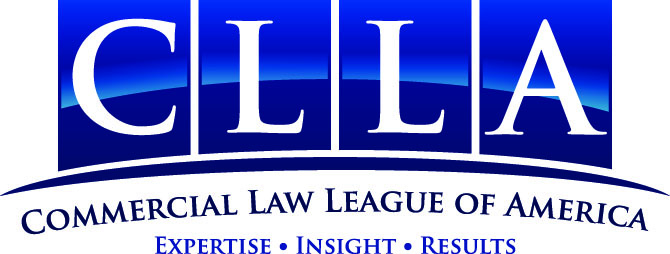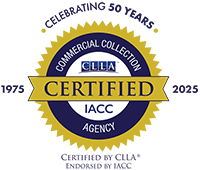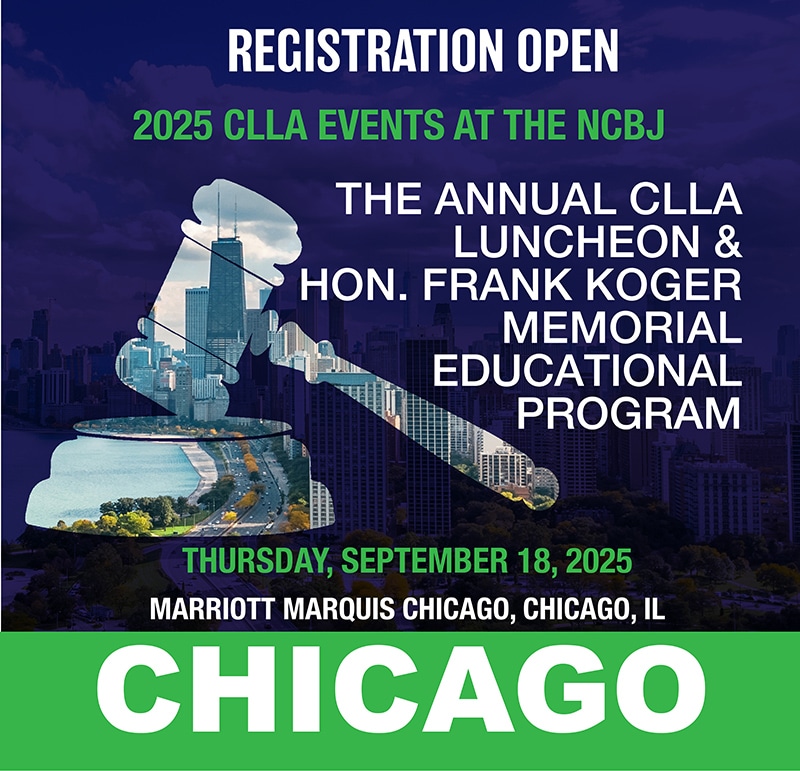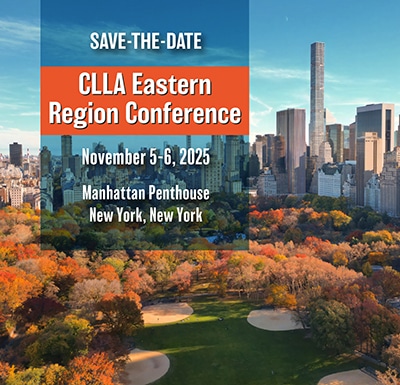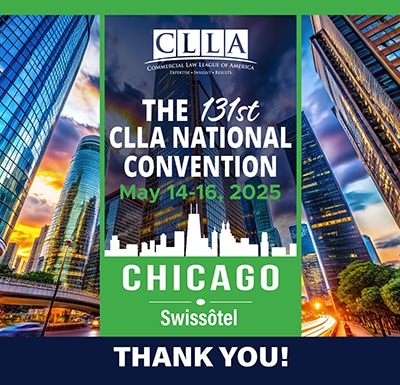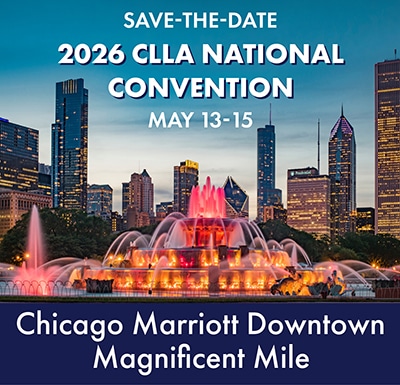Coronavirus Information and Resources

Coronavirus Information and Resources
In response to the ongoing COVID-19 Pandemic, CLLA wants to be sure you have the resources to stay current and informed during these unprecedented times. Please access the following information by clicking on the link.
Important Coronavirus Legislative Update from Timothy Wan, CLLA President
The CLLA hopes you, your loved ones, and co-workers, are safe and healthy in these unprecedented times.
The CLLA has been monitoring and opposing all proposed legislation to make sure that small businesses, which include many of our members, are not financially ruined by legislation with unintended consequences. We have charged our lobbyist to spread our message to Capitol Hill. We have also been in constant communication with the National Creditors Bar Association, the Commercial Collection Agencies of America, and the International Association of Commercial Collectors in order to coordinate our efforts to oppose the legislation.
The “CARES Act”, S.3548, is silent with regard to debt collection as a whole. It does create limitations on foreclosures, credit reporting, evictions, and governmental student loans. However, there are bills circulating in Congress, such as H.R. 6370, and S.3565, which attempt to put a total moratorium on debt collection, regardless of whether the customer has the ability to pay, or even has been impacted by any national emergency.
On March 20, 2020, the CLLA took action to protect our members and sent a letter to the President and Congressional leaders advocating for our members with regard to H.R. 6370. Currently, the Board of Governors is working on proposing common sense legislation with regard to S.3565 that is compassionate, but protects the credit industry. We encourage you to also take action by writing to your legislators to help ensure that our members are able to continue their business operations, and reach out to your contacts, clients, and business relations to help spread this message.
We are here for you and we care. A link to the Department of Labor’s March 24th Q&A can be found here: https://www.dol.gov/agencies/whd/pandemic/ffcra-questions (Note that the DOL is announcing that the new law goes into effect April 1, not April 2.) We will also be trying to put some information together for those of you who need help obtaining a SBA loan.
You are not alone. We’ve got your back and we’re going to see this through together. Keep in touch with us, follow us on social media.
S.3565 IS OVERBROAD AND FRAUGHT WITH UNINTENDED AND DANGEROUS CONSEQUENCES
In this time of economic confusion and uncertainty, S.3565 (the “Bill”) was crafted and introduced with intentions to ease pressure on those faced with economic hardship. While the CLLA supports this intent, the Bill would unfortunately cause more harm and uncertainty to the commerce of our nation than the relief it proposes to those in need. The following are just a few examples:
I. S.3565 WRONGLY AND UNNECESSARILY BROADENS THE FDCPA TO PROTECT COMMERCIAL DEBTORS
The Fair Debt Collection Practices Act, 15 U.S.C. § 1692 et. seq. (“FDCPA”) protects unsophisticated consumers from violations by debt collectors. The Bill improperly expands the FDCPA to include debt collection restrictions against small businesses and imposes fines and penalties against debt collectors who pursue collection activities against small businesses. The FDCPA was not designed to govern inquiry and collection of business debt, as businesses are held to a higher standard than consumers, and business transactions are generally negotiated at arm’s length between merchants. The Bill would add another layer of regulation and uncertainty to private businesses dealings and open the flood gates to a sea of unintended litigation. Any regulation against small business should not be incorporated into the FDCPA.
II. S.3565 WILL FURTHER IMPAIR AND SUSPEND FUNDAMENTAL PRINCIPLES OF COMMERCE
The Bill will impair and effectively rewrite previously negotiated credit terms and contracts between businesses, by suspending legitimate accounts receivable and collection inquiries and eliminating existing federal and state laws that provide relief and certainty to businesses and business transactions. The commerce of our country is built upon credit. Industry and commerce thrive because banks and other businesses extend credit to enable transactions and business growth. When one business loses its normal operating capacity, the resulting loss of production, revenue and lag in receipt and payment of receivables, sets off a chain of events that affects the production, payment of receivables and receipt of revenue for other businesses. In such instances, businesses may attempt to manage and collect receivables on their own or hire attorneys or collection agencies to resolve issues associated with outstanding receivables. Such efforts are critical to the foundation and continuation of credit-based transactions and business relationships. Very simply, the Bill will disrupt the normal operations of businesses by halting all collection efforts, garnishments, evictions and foreclosures against individuals and small businesses during a state of emergency declaration. Any legislation that disrupts business operations at this time should not be considered by Congress because of the hardships that businesses all over the country are currently encountering.
A Message from Tim Wan
It is time to act! Congress is about to pass this, so please reach out to your local Congresspeople, RIGHT NOW!
The CARES ACT 2.0, on page 1037, Section 110402, includes a blanket moratorium on debt collection that will DESTROY small businesses!
See the link below on how you can act!
Commercial Law League of America – CLLA
April 6
Dear CLLA Member,
Americans are facing this time of crisis with solidarity, resolve, and an effort of togetherness.
While we wholeheartedly agree and support recent legislative consumer relief actions, there is legislation, such as Senate Bill S.3565, which provides for a blanket prohibition of debt collections, fraught with unintended consequences. For a breakdown of the reasoning, please visit this link to CLLA’s letter to the White House: https://lnkd.in/d8W-PpX
Here’s how you can help!
- You can download either of these form letters: one for CLLA members and their employees (https://lnkd.in/d7UxW6z), and another for credit grantors and small business owners (https://lnkd.in/dZJDt5G).
- Place your letterhead on top, and then send it to your local congress people.
- You can use this easy link:
- https://lnkd.in/eudKQfXShare this post or email this to anyone you know that you think would be willing to help!
Be smart out there, and I hope to see you soon.
Timothy Wan
CLLA President
A Message from Tim Wan
It is time to act! Congress is about to pass this, so please reach out to your local Congresspeople, RIGHT NOW!
The CARES ACT 2.0, on page 1037, Section 110402, includes a blanket moratorium on debt collection that will DESTROY small businesses!
See the link below on how you can act!
Commercial Law League of America – CLLA
April 6
Dear CLLA Member,
Americans are facing this time of crisis with solidarity, resolve, and an effort of togetherness.
While we wholeheartedly agree and support recent legislative consumer relief actions, there is legislation, such as Senate Bill S.3565, which provides for a blanket prohibition of debt collections, fraught with unintended consequences. For a breakdown of the reasoning, please visit this link to CLLA’s letter to the White House: https://lnkd.in/d8W-PpX
Here’s how you can help!
- You can download either of these form letters: one for CLLA members and their employees (https://lnkd.in/d7UxW6z), and another for credit grantors and small business owners (https://lnkd.in/dZJDt5G).
- Place your letterhead on top, and then send it to your local congress people.
- You can use this easy link:
- https://lnkd.in/eudKQfXShare this post or email this to anyone you know that you think would be willing to help!
Be smart out there, and I hope to see you soon.
Timothy Wan
CLLA President
Urgent Call to Action: CLLA Needs Your Voice!
Dear CLLA Member,
I hope this missive reaches you in health and safety in these unprecedented times. We, like all other Americans, are facing this time of crisis with solidarity, resolve, and an effort of togetherness.
While we wholeheartedly agree and support recent legislative consumer relief actions, there is legislation, such as Senate Bill S.3565, which provides for a blanket prohibition of debt collections, fraught with unintended consequences. For a breakdown of the reasoning, please visit this link to CLLA’s letter to the White House.
Here’s how you can help!
- You can download either of these form letters: one for CLLA members and their employees (link to CLLA Member and Employee Letter), and another for credit grantors and small business owners (Business Owner and Employee Letter).
- Place your letterhead on top, and then send it to your local congress people.
- You can use this easy link: https://www.govtrack.us/congress/members
- Share this post or email this to anyone you know that you think would be willing to help!
Be smart out there, and I hope to see you soon.
Timothy Wan
CLLA President
Brief Summary of the Small Business Sections of the Coronavirus Aid, Relief, and Economic Security Act or the (“CARES Act”) enacted on March 27, 2020.
Section 1, starting at Section 1101 of the Act, deals with keeping workers paid and employed. The Act allocates $349 Billion of the total Act funding to this part of the Act. The first section of the Act deals with loans to those companies that keep employees working during the COVID-19 outbreak.
Loans are available from the SBA to cover salaries and other expenses of Small Businesses for the period February 15, 2020 through June 30, 2020 (It is titled the Paycheck Protection Plan). Under the Act, employers can get a loan for 2.5 times the average of their payroll from February 15, 2019 to February 15, 2020. The Employer can use this money for salaries, commissions or similar compensation, mortgage obligations, rent, utilities and interest on debt incurred before the covered period. The Small Business Administration (herein “SBA”) will administer this Emergency Loan Program. This loan money also applies to non-profits with fewer than 500 employees. This program will be moved out by the SBA to qualified SBA lenders. These loans shall not require personal guarantees as the employer uses for the above purposes. The loans shall have a four percent interest rate with a ten year payback. These COVID-19 Loans will have an immediate 6 month complete payment deferral and up to 1 year of such deferral at the Lender’s discretion for COVID-19 related reasons including all amounts. The loans shall have a 0 risk weight for the lenders. The loans are not included in reporting for TARP purposes for the banks. Loan fees are paid by the SBA as a reimbursement and no agent can charge a fee. No loan commitment fees can be charged. These loans can be up to $1 million.
Federal Government Resources
If your state has received the necessary disaster designation, SBA’s Economic Injury Disaster Loan Program can provide low interest loans in this difficult time. A streamlined application process is now available at https://covid19relief.sba.gov/#
